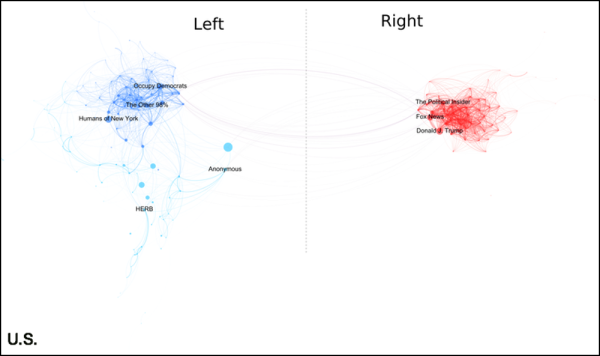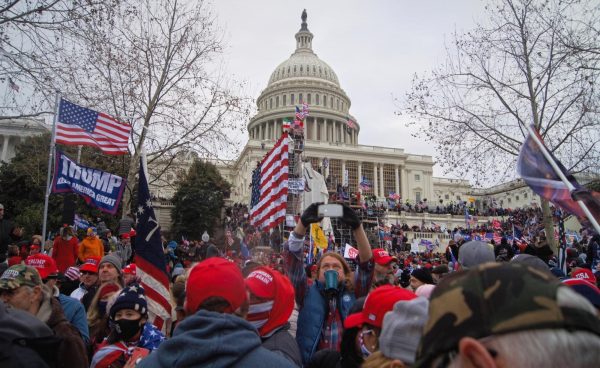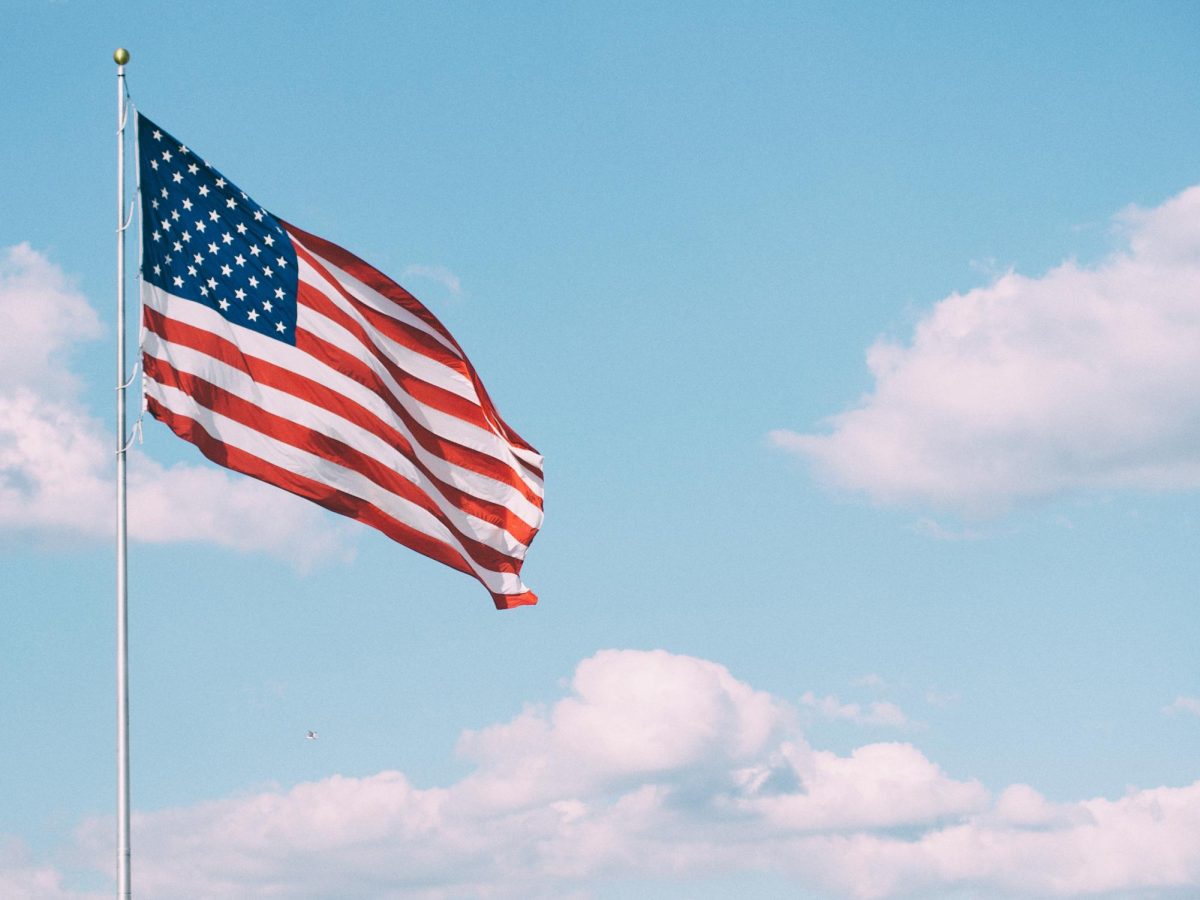When was the last time you were introduced to someone who identified as a different political party than you, and you judged them, even subconsciously? For half of Americans, this is a common experience.
Political polarization is the divide and alignment among partisan and ideological lines, and it is everywhere, even in those every day, small interactions between people.
To better understand the magnitude of the effects of political polarization, it is crucial to first acknowledge its causes.
The Roots of Political Polarization
Inevitably, unity fails when there is a lack of force holding a group together. In the case of the United States, this force dissolved when the Cold War ended and America no longer had a common enemy to fight. Hence, the people of America turned their attention to each other, marking the beginnings of the modern political polarization that we see today.
Christianity’s once dominant role in American culture is another force that no longer can act as a commonality between Americans, as religious diversity in America has been growing rapidly. Christianity has strict views on topics that are now controversial — therefore, when that commonality falls, an area for disagreement emerges. While this isn’t necessarily bad, as this diversity allows for more people to form opinions of their own and increase and diversify perspectives, it is important to understand religion’s role in setting the ball of political polarization rolling.
We can see this play out in politics today, as issues like gay rights and abortion were not debated on under a single religious domain, and now they are. The sides to these issues are separated into opposing political parties, deepening the split between them.
Moreover, social media is one of the biggest contributors to this issue, as it is now the main news source for many Americans.

In an article in the research journal Science, Eli Finkel wrote, “Social media technology employs popularity-based algorithms that tailor content to maximize user engagement.” This causes users to only gain exposure to material that aligns with their beliefs, creating “echo chambers.” This secures their firm stance with their political party and solidifies the “us” versus “them” concept in society, as it eradicates the necessary opportunity to hear differing opinions.
Social media also tends to oversimplify all parties and is typically infiltrated with misinformation, as no one is fact-checking the content. This enables the type of content that villianizes members of opposing political parties and frames them in a one-dimensional light to proliferate.
People view supporters of the opposing party as unpatriotic and morally incorrect, fostering acts of mutual discrimination, divergent understandings of facts, justifications for anti-democratic behavior, and even outright hate. These trends have only become more pronounced with the rise of populism, political stances that emphasize ‘the people,’ and growing threats of violence against elected officials.
There once were conservative liberals, moderates, and liberal conservatives. Now, there is no nuance, or an understanding of each other’s sides, just firm stereotypes. This pressures politicians into being strictly one-way, because otherwise, they won’t get support. Therefore, we need to actively address this issue, as there are no incentives for politicians or social media companies to combat this issue.
Another way that we can see the “us” versus “them” concept or binary thinking perpetuated is through geographical sorting. People tend to live in areas of like-minded people, reducing their exposure to other beliefs. Thus, differing ideas begin to seem radical and foreign to them. When people have grown up surrounded by specific ideologies, it is very hard for their minds to be changed. Hence, we see this cycle of polarization continuing through future generations.
National Implications

The terms “gridlock” and “government shutdown” have been thrown around a lot recently, but what does this actually mean for America, and how is this a byproduct of political polarization?
Political gridlock is the inability to pass legislation or make decisions in global affairs due to an evenly divided party control. With an increased partisan gap, the chance of negotiation between parties is limited and even impossible. For the government to make any choices, those decisions have to be agreed upon with a majority, and because no side wants to concede or compromise, the system becomes backed up with bills, and the government reaches a deadlock.
We can see the effects of this in current politics such as the stalemates over numerous high-profile issues including social security, medicare, healthcare, and finance reform.
The January 6th insurrection and the lack of effective responses to issues like the COVID-19 pandemic and climate change show the dangers of unchecked polarization.
In just the past year, Congress has been struggling to pass the federal budget because policymakers couldn’t agree on whether or not to raise the debt ceiling.
Likewise, in the past few months, Congress has been debating over the allocation of funding for the next financial year and the lack of ability to reach a consensus is increasing the possibility of a government shutdown.
A shutdown typically involves furloughing non-essential government employees and suspending various government services, programs, and agencies.
Essential functions like national defense, law enforcement, and public safety typically continue operating, but quite ineffectively. Many other public services would take an even greater hit.
Global Implications
Studies show Democrats and Republicans have grown further divided on international issues, just as they have on domestic matters. In a survey from 2018, U.S. foreign policy professionals ranked domestic polarization as the most critical threat to the U.S.
Polarization undermines bipartisan consensus for the grand strategy of liberal internationalism that guided U.S. foreign policy after World War II. Therefore, the U.S. doesn’t have a strong or reliable policy. Kenneth Schultz, an expert in political science, explains that this “makes us less capable of learning from our mistakes and more vulnerable to harmful external influences.”
Polarization also limits decisions on military action and international cooperation. Generally, Democrats and Republicans prioritize different components to a military attack, with Democrats holding more importance in avoiding the most civilian casualties, and Republicans prioritizing military victories. Because of this, U.S. leaders are losing their ability to achieve congressional approval in international affairs.
Not only does polarization limit foreign policy execution, but it also harms its effectiveness. As some scholars have argued, polarization has limited patriotism, in response to external security threats as the response itself cannot be agreed upon.
We can see the effects of this in issues that previously exhibited little partisan divergence, such as attitudes toward China, Russia, and the Israel-Palestinian conflict, which have recently become more polarized.
In relation to the Russia-Ukraine war, party disagreements have even stalled decisions on whether and how much U.S. aid should be sent to Ukraine. In these critical issues where bad timing can cost lives, places like Ukraine will suffer because of the U.S.’s inability to make decisions.
However, polarization won’t just affect world affairs in terms of conflict; it will also have an impact on democracy itself. As the U.S. separates farther and farther into our two partisan worlds, the ideals democracy exhibits will separate too. Gerrymandering, campaign financing, corruption, and other practices all oppose democratic ideals, but are fueled by the parties that make up our “democracy.”
Not only will our country not function like a democracy, but people will lose faith in it, and without the people in a democracy, there is no democracy.
What would happen without democracy? Hungary, Poland, Turkey, Thailand and Venezuela are all undergoing democratic collapse under new elites and dominant groups or collapse due to the return of old elites and dominant groups due to political polarization.
Solutions
So, is there any hope of saving America from itself? Yes and no.
The American people have to be able to fact check their information and be more empathetic and open minded to others. Political leaders should model more respectful and collaborative behavior in their interactions, emphasizing the importance of compromise and unity, and prioritizing common ground and consensus over rigid ideologies.
On a policy level, we should encourage inclusivity in politics by promoting diverse representation in government and supporting policies that ensure all voices are heard.
We should further develop regulations and policies to address the role of social media in spreading disinformation and polarizing content, as well as encourage responsible journalism to shrink this issue at one of its root causes.
The United States House of Representatives and Senate should additionally consider electoral reforms, such as ranked-choice voting or proportional representation, which can encourage more moderate and consensus-driven candidates. We could also implement campaign finance reforms to reduce the influence of money in politics and make elections less driven by extreme positions. This would put less pressure on politicians, and less limitations on what parties can believe in.
However, legislation cannot fix this rift by itself – the people of the United States have to be willing to do so, too. Can we?
Is there any hope of saving America from itself?

